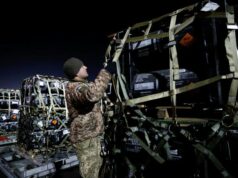Army invokes emergency powers for missile deal
Set to procure systems from Israel and Russia
The Army is in the process of procuring Spike-LR Anti-Tank Missiles from Israel and Igla-S Very Short Range Air Defence Systems (VSHORAD) from Russia through a set of new financial powers for emergency procurements sanctioned by the Defence Ministry earlier this month, Defence sources said.
“Under the latest emergency financial powers, armed forces have been given a free hand to procure equipment worth up to ₹300 crore on a priority basis.
The Request For Proposal (RFP) for the two deals have been issued and negotiations are ongoing,” the source said. Entirely new systems not in use can also be procured under the new powers, the source stated.
Tenders for both deals had gone through regular procurement process earlier. While the Spike tender was cancelled during the cost negotiation phase, the deal for Igla, after repeated delays, is in the cost negotiation phase.
However, given the questions that were raised in the earlier deals, clarity is needed on the modalities for purchase through the emergency route.
Under the emergency route, the Army is looking to procure about 12 launchers and around 250 missiles for each system. Deliveries have to be completed in three months, but extendable to six months.
The Spike-LR (Long Range) being procured is a different variant from the one tested and shortlisted as part of the earlier procurement for over 8,000 missiles and 300 launchers along with technology transfer.
As contract negotiations dragged on, the deal was cancelled in January last year and it was decided to procure a smaller number — 170 launchers, 4,500 missiles and 15 simulators — through an Inter-Governmental Agreement (IGA) and make up the balance requirement with an indigenous Man Portable ATGM currently under development.
Before the IGA was concluded, validatory trials of the Infrared Seeker (IR) of the missile were to be held during the Indian summers as the missile “did not perform as desired in the previous trials during peak summer temperatures in the desert,” according to another source. However, the IGA has not made progress so far. The Spike-LR (Long Range) has a range of 4 km. It is so far not clear if additional trials would be performed as part of the emergency procurement. Some defence officials indicated that testing was not required as the missile is operational and in service across the world and that if needed tests would be carried out in the home country (Israel).
The deal for VSHORAD, to replace the legacy Igla systems in service, began in 2010 and has since seen several trials and re-trials with three contenders in the fray — MBDA of France, Rosoboronexport of Russia and SAAB of Sweden. Eventually, all three were declared technically complaint last year.
While the benchmark price determined was just over $2 bn, Rosoboronexport’s bid was much lower at around $1.47 bn, while SAAB’s bid was at about $2.6 bn and MBDA around $3.68 bn.
This led to a division within the Ministry on how to proceed given such low bid from the Russians compared to the benchmark price, but eventually Igla-S was declared the winner. “The deal is currently at the Contract Negotiation phase,” the source said.
Officials said the emergency procurements were one of critical procurement and not related to the acquisitions through the regular route, in a bid to assure that these would not impact the regular deals.
In the case of VSHORAD, the other two vendors lodged protests and wrote a series of letters to the Defence Ministry on several occasions alleging procedural violations favouring Igla-S which were rejected.



